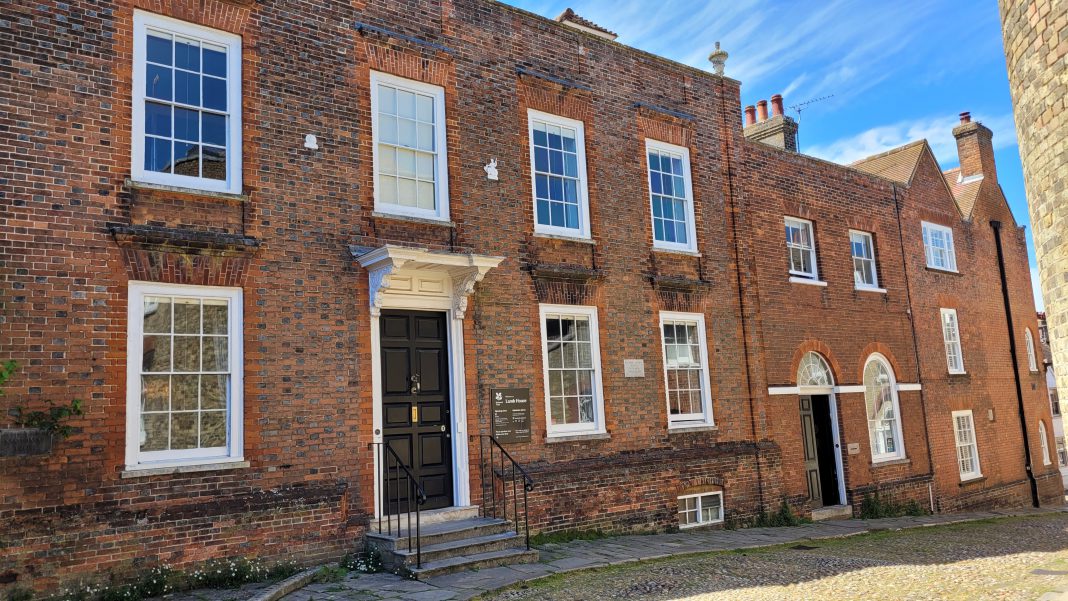The winter of 1725 / 26 had been severe, with frost, snow and heavy rain with gale force winds. In London the river Thames was 10cm higher than it had been for 40 years. London was cold, damp and foggy. The adverse weather seems to have been the result of the so-called little ice age, running from the early 14th century to the middle of the 19th century, when world temperatures dropped by as much as 2 degrees centigrade. One impact can be seen in English furniture production. In the early 18th century, a run of seven severe winters caused the French government to ban the export of the country’s much sought after walnut trees, leading to the use of West Indian mahogany.
The king, George I, wasn’t in his capital city. He was in Hanover, his capital before taking the English throne in 1714, when he was still just the Elector of Hanover. Despite now being king of the United Kingdom he much preferred his home town. He was already 54 in 1714, so very much set in his ways. He never really cared that much for his grand new kingdom and didn’t really bother to learn much English. His visit to open the Hanoverian parliament was just one of six that he made during his reign. Indeed, it was on a trip to Hanover that he died after a stroke in 1727. It was with some reluctance that George set out for London in January 1726, a journey hampered by very poor roads.
The sea crossing to England wasn’t too appealing either. George set out into the rough and stormy channel, in the largest of his fleet of royal yachts, the Carolina. The weather was so terrible that Carolina and her escort vessels were unable to enter the mouth of the Thames, instead spending three days at sea. One can only imagine how the passengers and crew felt. Eventually they were able to make a landfall at Camber Sands, near Rye.
The townspeople of Rye were alerted to what was happening so close to their home, and a delegation set out to find the king and offer what assistance they could. The king was 66 and clearly in no fit state to struggle on to London. The problem was where to lodge him, to let him recover from his ordeal. Amongst those meeting the king was James Lamb, local mayor and wealthy wine merchant. Four years earlier he had built himself a splendid house in West Street, and that is where they took the king, to get warm and recover.
King George was put to bed in Lamb’s own bedroom, now known as the King’s Room. To do this meant displacing the unfortunate Martha Lamb, already in occupation and due to give birth imminently. In fact, she gave birth to a boy on the night of the king’s arrival. His Majesty, no doubt grateful for the hospitality shown to him during his stay of about three days, agreed to stand as godfather to the boy, named George in his honour, at his baptism in St Mary’s church. The king’s gift was a splendid silver gilt bowl, still to be seen in Lamb House.
When the king left for London, he was escorted through the High Street, then called Longer Street, by Lamb and the Jurats of Rye, serenaded by the town band, whilst church bells rang and guns were fired.
It is sometimes wondered how the non-English speaking king and non-German speaking Lamb were able to converse. In fact, it was quite simple. Both were fluent in Latin.
Image Credits: Juliet Duff .




Interesting article. The fact that King George and Lamb communicated in Latin made me recall when I went to Herstmonceux castle . It was an outing from Rye . And we went round the gardens and I was with a lady from France who was interested in the plants..It was then I learnt that knowing the English names of plants was not useful to communicate. Plant names in Latin was perfect…way of communicating..
So the ‘dead language ‘ Latin still has life in it after all..
Many thanks for your comment. At one time Latin was the only common language for the elite to communicate in. Until fairly modern times for instance, it was the way that cardinals of the Roman Catholic church from different countries would speak to each other. Being the widower of a doctor, and from a family with a history of the law, I know that in those professions Latin is not dead.
MM
Thank you for this information this is my family tree and it is amazing to learn our history
Hullo Claire
So happy to find you so recently on this site.
I see that Martha Lamb gave birth in 1726 when King George 1 visited Rye. My interest is in Eliza and our family have an image of her. Our families inter- married.
I would be delighted to chat to you. How would this be possible?